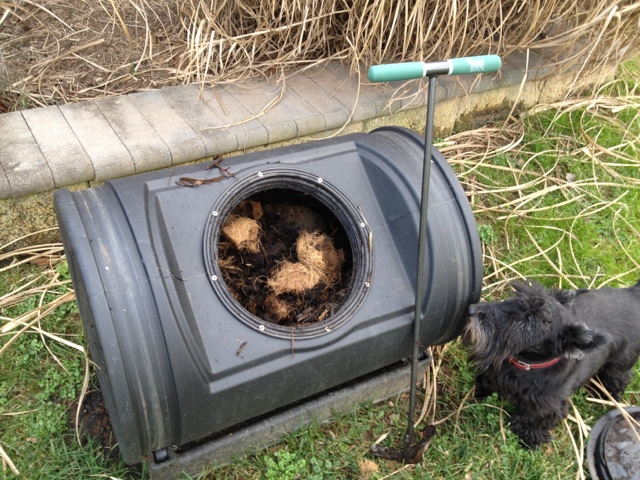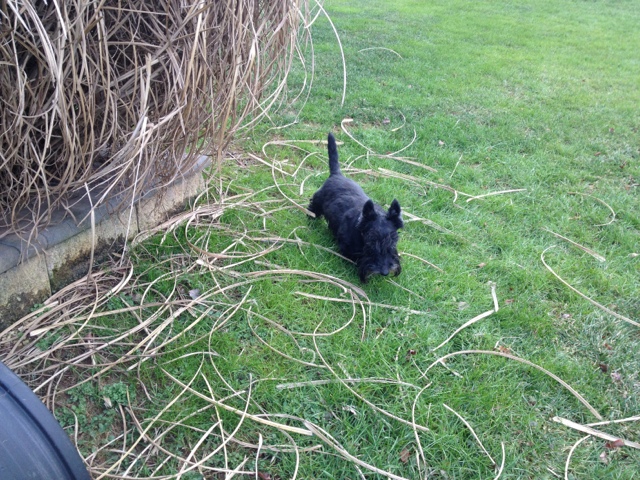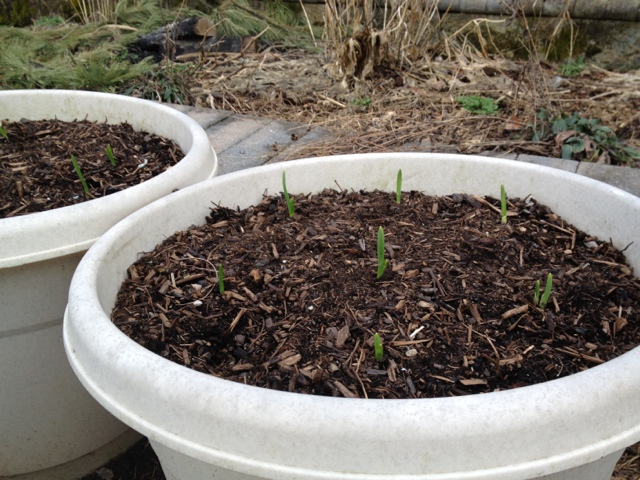My 2011 resolution was to start composting food scraps & yard waste, and I'm happy to report that in 2012 I'm still going strong! It took a bit of research to figure out the best composting method for me. Since I live in an area with quite a bit of wild-life as well as a lot of homes, I needed a composter that would keep the pests completely out, and keep me in good with neighbors. After reading Let it Rot: The Gardener's Guide to Composting,(Stu Campbell) I decided on an enclosed compost tumbler.

Once a week, more often in the summer, my darling husband, (often joined by our ferocious Scottish Terrier Jay,) takes the food scraps out to the composter, gives it a turn & voila he's done! To keep this easy, and as mess free as possible, we keep a small food scrap bin (with a charcoal filter) under the kitchen sink. We put fruit, vegetables, crushed egg shells, crushed shrimp shells, tea leaves, coffee grounds, & hops from beer brewing into the composter. We also have a large group of worms that live inside the bin. Every once in a while I'll see one burrow down into the scraps after I've turned the bin.
Other than food & garden scraps, many people add manure to their compost. Since I don't have a steady supply, I rely upon worm castings. Worm castings are the by product of the worms eating all of the compost, aka: worm poop. Ultimately, the composted scraps, yard waste & worm poop will be mixed in with the soil for all of the plants in my 2012 garden.

We haven't had a deep freeze or heavy snow yet, but I am a little nervous that either the compost bin wheels or lid may freeze. In case the wheels freeze, I bought a compost turner (see the first image) that will allow us to keep the oxygen flowing inside the bin. If the lid freezes, I'm not sure what we'll do. I guess we could build a worm composter and keep it in the basement, oh my three year old would love it!
One of the first plants to receive a gluttons-helping of compost will be my garlic. In October, I planted the bulbs and I have high hopes that my generous supply of compost then, and again in a couple months will result in an abundance of bulbs by June. As you can see below, I've got sprouts!

No matter where you live, apartment, townhouse, or sprawling mansion, there's a way for you to compost your food scraps too. Just recently, a county in Maryland expanded their curbside food scrap recycling program. Talk about service! This is program has a lot of local gardeners excited because it also means the county will increase their production of local compost for purchase! Often, compost purchased at a garden center is priced 2x (or more) higher because the compost is shipped in from another state or across the country.
Even if a curbside pick-up program makes it's way to my neighborhood, I'll continue to compost so that my garden can benefit organically (on the super cheap!) from my kitchen scraps & garden waste.